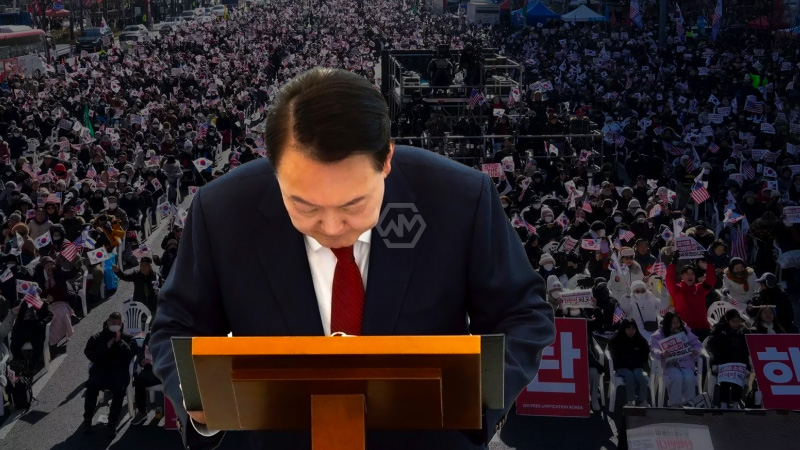- South Korea’s impeached president, Yoon Suk Yeol, faces an unresolved arrest warrant on insurrection charges.
- Presidential security chief refuses to cooperate, citing legal ambiguities.
- Protests escalate as supporters and opponents clash amidst political instability.
The ongoing political crisis in South Korea has taken a dramatic turn, with President Yoon Suk Yeol becoming the first sitting leader to face an arrest warrant for insurrection. Accused of attempting to declare martial law, Yoon has been impeached by parliament and awaits the Constitutional Court’s verdict on his removal.
Meanwhile, his security chief, Park Chong-jun, has defied orders to facilitate his arrest, citing unresolved legal debates over the warrant’s legitimacy.
Legal Showdown and Public Protests Grip South Korea Amidst Presidential Crisis
This impasse has triggered mass protests across Seoul, with both supporters and critics of Yoon taking to the streets in freezing conditions. Labour unions demand his immediate arrest for undermining the constitution, while loyalists call for justice and solidarity. As U.S. Secretary of State Antony Blinken visits South Korea, the political and international implications of this crisis loom large.
The warrant stems from Yoon’s alleged attempt to declare martial law, a move that Parliament condemned through impeachment. While Yoon’s lawyers argue that the Corruption Investigation Office lacks jurisdiction to investigate such charges, the Constitutional Court must decide his political fate. The debate underscores a clash between legal processes and political accountability in South Korea’s governance.
Public unrest continues to escalate as protesters gather in freezing temperatures to voice their demands. Labour unions and opposition leaders have condemned Yoon’s actions, calling for swift legal action to uphold constitutional principles. Simultaneously, loyal supporters rally near the presidential residence, amplifying the polarized sentiment across the nation.
This political standoff holds broader implications for South Korea’s democratic institutions and its standing as a key ally in the Asia-Pacific. With U.S. Secretary of State Antony Blinken in Seoul, the international community is closely monitoring developments, signaling the crisis’s global significance.
South Korea’s unfolding crisis serves as a critical test of its constitutional framework and political resilience. The outcome will shape not only the nation’s governance but also its democratic legacy.
“We must bring down the criminal Yoon Suk Yeol and arrest and detain him as soon as possible.”



